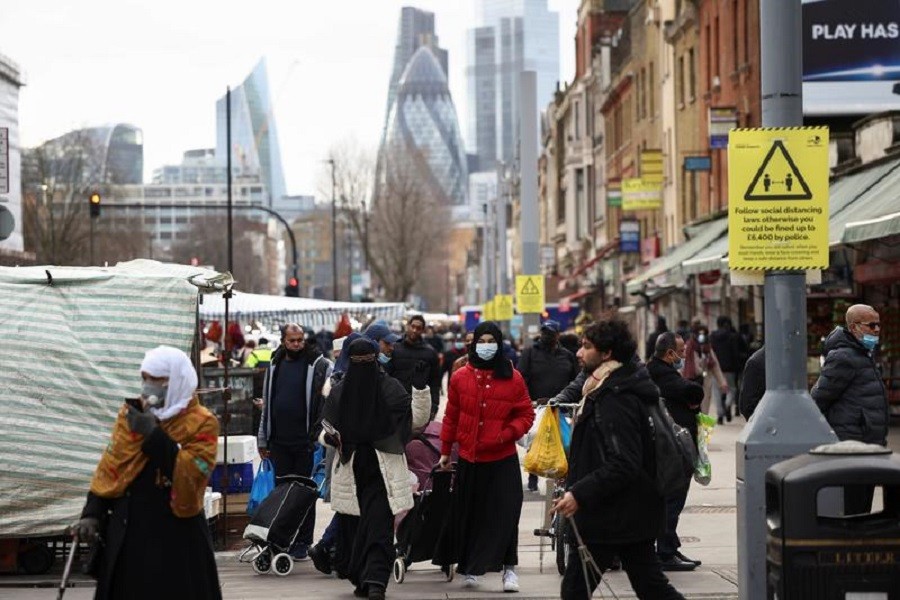Britain’s economy shrank by less than feared in January as the country went back into a coronavirus lockdown, official data showed, but trade with the European Union was hit hard at the start of the country’s new, post-Brexit trading relationship.
Gross domestic product in January was 2.9 per cent lower than in December, the Office for National Statistics said.
Economists polled by Reuters had expected a contraction of 4.9 per cent.
Britain’s economy is likely to shrink by 4.0 per cent in the first quarter of 2021, due mostly to the latest lockdown but also because of disruption caused by new, post-Brexit rules for trade with the European Union, the Bank of England said last month.
Samuel Tombs, an economist with Pantheon Macroeconomics, said Friday’s data and other more recent indicators suggested the economy might now be on course to fall by a less severe 2.0 per cent in the first quarter.
The BoE is expected to keep its stimulus programmes on hold at the end of its March meeting next Thursday as it predicts that Britain’s vaccination programme - Europe’s fastest - will trigger a bounce-back in the economy in the coming months.
The ONS data showed exports and imports from Britain to the EU plunged by the most on record although the ONS said a difference in the way the figures were gathered was causing a delay to some data.
Exports of goods to the EU, excluding non-monetary gold and other precious metals, slumped by 40.7 per cent. Imports fell by 28.8 per cent.
Many companies brought forward imports of goods late last year to avoid the risk of border disruption as the new UK-EU trading relationship began in early 2021 and global trade flows have been hit by the coronavirus pandemic.
The ONS said the overall GDP figures were hit hard by the impact of social distancing rules on Britain’s huge services sector.
“The economy took a notable hit in January, albeit smaller than some expected, with retail, restaurants, schools and hairdressers all affected by the latest lockdown,” Jonathan Athow, an ONS statistician, said.
“Manufacturing also saw its first decline since April with car manufacturing falling significantly. However, increases in health services from both vaccine rollout and increased testing partially offset the declines in other industries.”
Britain’s economy shrank by 1.7 per cent in the three months to January, a smaller fall than a median forecast of a contraction of 2.5 per cent in the Reuters poll.
The economy was 9.2 per cent smaller than in January last year, the ONS Statistics said.
Prime Minister Boris Johnson plans to ease England’s coronavirus restrictions gradually before lifting most of them by late June.
Growth in the next few months is also likely to get a boost from finance minister Rishi Sunak’s announcement last week that he will pump a further 65 billion pounds into the economy, including an extension of his jobs-protecting furlough scheme.
The ONS said Britain’s dominant services sector - which has been hit hard by social-distancing rules - shrank by 3.5 per cent in January from December. The Reuters poll had pointed to a 5.4 per cent contraction.
Manufacturing contracted by 2.3 per cent but construction output rose by 0.9 per cent.
The monthly fall of nearly 3 per cent in GDP in January was much less severe than its plunge of 18.3 per cent in April last year when Britain went into its first coronavirus lockdown.
Many companies have adapted to life under lockdown, including retailers who have ramped up their online shopping operations and services firms who have tried to help workers to do their jobs from home.


